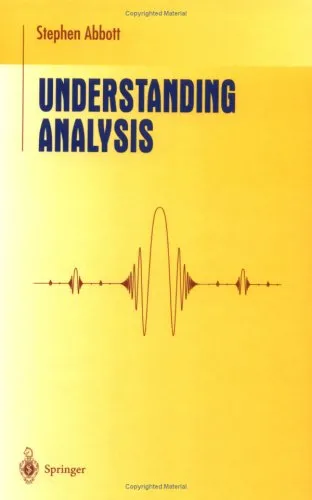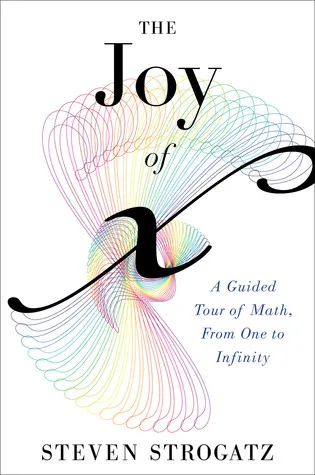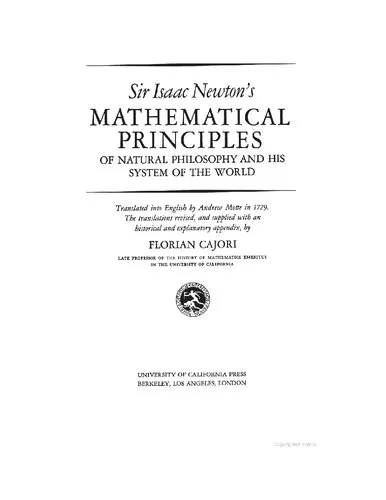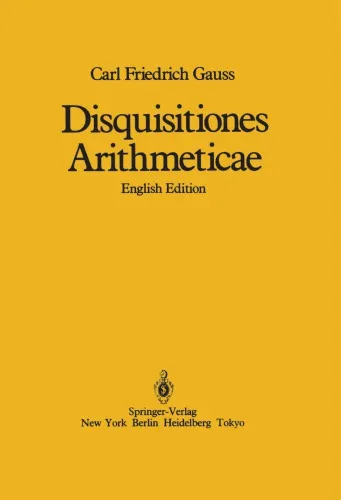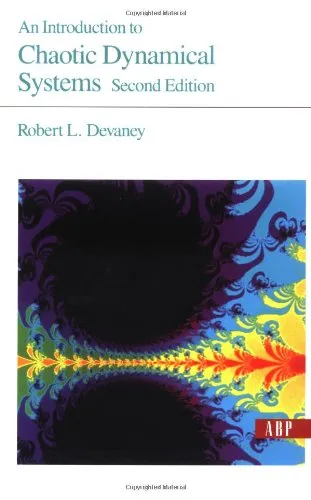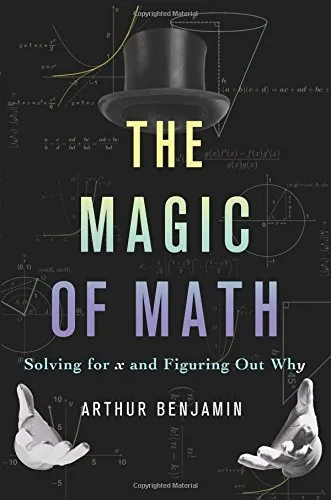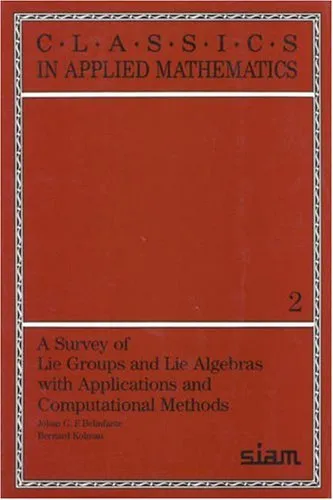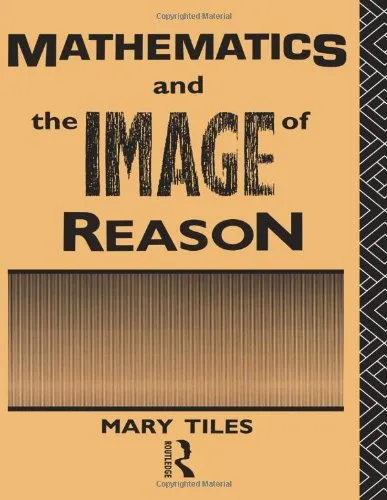The Principles of Mathematics
4.5
بر اساس نظر کاربران

شما میتونید سوالاتتون در باره کتاب رو از هوش مصنوعیش بعد از ورود بپرسید
هر دانلود یا پرسش از هوش مصنوعی 2 امتیاز لازم دارد، برای بدست آوردن امتیاز رایگان، به صفحه ی راهنمای امتیازات سر بزنید و یک سری کار ارزشمند انجام بدینکتاب های مرتبط:
مقدمهای بر کتاب "The Principles of Mathematics"
کتاب "The Principles of Mathematics" نوشتهٔ برتراند راسل، یکی از آثار مهم و پایهای در حوزه منطق ریاضی و فلسفه ریاضیات است. این کتاب در اوایل قرن بیستم منتشر شد و تلاش میکند تا پایههای منطقی ریاضیات را به دقت بررسی و بازنمایی کند. در این مقدمه، خلاصهای جامع از کتاب، نکات کلیدی، نقلقولهای معروف و اهمیت تاریخی این اثر بررسی خواهد شد.
خلاصهای از کتاب
کتاب "The Principles of Mathematics" در دو بخش اصلی سازماندهی شده است. بخش اول به مبانی منطق و اصول اولیهای میپردازد که برای تعریف و ساختن ریاضیات ضروری هستند. راسل در این بخش، ساختار مفاهیم اساسی همچون عدد، مجموعه، و رابطه را تحلیل نموده و زیربنای منطقی این مفاهیم را بررسی میکند.
در بخش دوم، راسل به بررسی موضوعات کلیدی در ریاضیات عملی میپردازد و تلاش میکند تا نشان دهد که تمامی مفاهیم ریاضیاتی را میتوان به اصولی تحت عنوان Logicism وابسته کرد. این نظریه بیان میکند که ریاضیات در واقع شاخهای از منطق است و تمامی مفاهیم و قضایای ریاضیاتی را میتوان صرفاً با استفاده از منطق تعریف و اثبات کرد.
یکی دیگر از جنبههای مهم کتاب، استفاده راسل از روش تحلیل فلسفی است. او به جای پذیرش اصول ریاضی به صورت پیشفرض یا شهودی، این اصول را به مفاهیم اساسیتری میکاهد و سپس از آنها برای ساخت ساختارهای پیچیدهتر استفاده میکند. این رویکرد باعث شد تا مباحث جدیدی مانند Paradoxهای منطقی و ضرورت بازاندیشی درباره Axiomها مطرح شود.
نکات کلیدی
- The Principles of Mathematics، اساس نظریه Logicism را ارائه میکند.
- بحث درباره Axiomهای بنیادین ریاضیات و تعریف مجدد آنها بر اساس منطق.
- تحلیل مفاهیم مهم همچون عدد، تابع، مجموعه، و رابطه.
- ارائه پاسخ به Paradoxهایی مانند Paradox راسل که در ریاضیات کلاسیک مطرح میشود.
- تلاش برای برقراری همگرایی میان فلسفه و ریاضیات از طریق یک چارچوب منطقی.
نقلقولهای معروف از کتاب
"Mathematics is the science in which we never know what we are talking about, nor whether what we are saying is true."
"Logic, it seems to me, is the essence of all reasoning, and therefore it must necessarily precede the deductive sciences such as mathematics."
چرا این کتاب مهم است؟
کتاب "The Principles of Mathematics" از چندین جهت یک اثر برجسته و ماندگار است. نخست آنکه، این کتاب نقش بزرگی در توسعه منطق مدرن و فلسفه ریاضیات داشته است. نظریه Logicism که توسط راسل و آلفرد نورث وایتهد در آثار مشترکشان مانند Principia Mathematica نیز دنبال شد، تأثیر عمیقی بر ریاضیات و علوم فلسفی گذاشت.
دوماً، این کتاب با شفافیت و دقت بالا، بسیاری از مشکلات و تناقضات مطرح در ریاضیات را توضیح داده و راهحلهایی را برای آنها پیشنهاد میدهد. این مباحث نه تنها برای ریاضیدانان بلکه برای فیلسوفانی که به دنبال درکی عمیقتر از مفاهیم بنیادین هستند، ارزشمند است.
سرانجام، "The Principles of Mathematics" به دلیل ترکیب دیدگاههای فلسفی و فنی، الهامبخش بسیاری از متفکران متاخر در زمینههای مختلف بوده است. اهمیت تاریخی و علمی این کتاب آن را به یکی از منابع اصلی مطالعات در منطق و ریاضیات تبدیل کرده است.
Introduction to 'The Principles of Mathematics'
‘The Principles of Mathematics’ by Bertrand Russell is a groundbreaking intellectual work first published in 1903. It seeks to provide a comprehensive foundation for mathematics by meticulously exploring its underlying concepts, axioms, and logical structures. Russell's seminal work not only shaped the field of mathematical logic but also profoundly influenced philosophy, laying the groundwork for the emergence of analytic philosophy in the twentieth century.
This book is a philosophical investigation that combines rigorous analysis with clarity, as Russell examines the assumptions and logical principles underpinning mathematical theories. Avoiding abstraction for its own sake, 'The Principles of Mathematics' demonstrates Russell's aim to show that mathematics is grounded in logic, supporting this argument with precise reasoning and well-thought-out propositions. Over a century later, this book remains an essential reference for scholars of mathematics, philosophy, and logic alike.
Detailed Summary of the Book
Bertrand Russell begins his treatise by discussing the philosophical basis of mathematics. He challenges prevailing perceptions and questions whether mathematical truths are empirical observations or universal abstractions derived through logic. The book is divided into two main areas of focus: Pure Mathematics and the logical underpinnings of mathematical concepts.
Russell asserts in the book's key thesis that mathematics is essentially a branch of logic. He develops this idea with rigorous analysis, addressing numerals, infinite series, sets, and classes, all while attempting to resolve foundational paradoxes that had perplexed mathematicians of his time. The famous paradox now bearing the name “Russell’s Paradox” emerges from this exploration, significantly influencing modern mathematics and logic.
He proceeds to scrutinize topics such as number theory, the nature of infinity, propositions, and relations. By delving into these components, Russell intends to establish a unified structure where mathematics rests solely upon logical premisses. This ambitious work also critiques several earlier philosophies of mathematics, including those of Kant, Leibniz, and Peano, setting itself apart as a bold and forward-thinking contribution to mathematical philosophy.
While the book is comprehensive and highly detailed, it also confronts key philosophical questions: What is the nature of mathematical truths? How does one reconcile intuition with formal logic? 'The Principles of Mathematics' lays the foundation for Russell's later work with Alfred North Whitehead, culminating in Principia Mathematica, which extended and formalized many of the ideas advanced in this volume.
Key Takeaways
- The book argues that mathematics is reducible to pure logic, forming the foundation of the entire discipline.
- It introduces 'Russell's Paradox,' which complicates the notion of sets containing themselves and reshapes our understanding of set theory.
- Russell emphasizes the importance of precision in definitions, utilizing symbolic logic to remove ambiguity in mathematical reasoning.
- It critiques existing philosophies of mathematics, such as those offered by Kant and empiricists, challenging pre-existing notions of mathematical intuition.
- The work serves as a precursor to major developments in analytic philosophy and formal logic, influencing fields beyond mathematics.
Famous Quotes from the Book
“The certainty of mathematics is to be sought in the certainty of logic.”
“Mathematics, rightly viewed, possesses not only truth but supreme beauty.”
“One of the chief triumphs of modern mathematics consists in having discovered what mathematics really is.”
Why This Book Matters
'The Principles of Mathematics' is more than just a book about mathematics; it is a profound exposition on the nature of knowledge, truth, and reasoning. Bertrand Russell meticulously explores the logical structures underlying mathematical principles, offering a novel perspective that challenges traditional views. This work is a cornerstone in both the philosophy of mathematics and modern logic, as it provides a blueprint for understanding mathematics as a rigorous, logical system.
The significance of this book lies in its lasting influence. It contributed to the formalization of mathematics, heralding new frameworks such as set theory and symbolic logic. Furthermore, the ideas in this book inspired later generations of philosophers, logicians, and mathematicians, paving the way for major discoveries in computer science, artificial intelligence, and formal systems.
Even today, Russell's insights resonate strongly, reminding us of the importance of logic and precision not only in mathematics but in all intellectual endeavors. 'The Principles of Mathematics' remains an essential work for those pursuing foundational knowledge in mathematics or philosophy, offering timeless lessons that continue to shape the way we see and understand the universe.
دانلود رایگان مستقیم
شما میتونید سوالاتتون در باره کتاب رو از هوش مصنوعیش بعد از ورود بپرسید
دسترسی به کتابها از طریق پلتفرمهای قانونی و کتابخانههای عمومی نه تنها از حقوق نویسندگان و ناشران حمایت میکند، بلکه به پایداری فرهنگ کتابخوانی نیز کمک میرساند. پیش از دانلود، لحظهای به بررسی این گزینهها فکر کنید.
این کتاب رو در پلتفرم های دیگه ببینید
WorldCat به شما کمک میکنه تا کتاب ها رو در کتابخانه های سراسر دنیا پیدا کنید
امتیازها، نظرات تخصصی و صحبت ها درباره کتاب را در Goodreads ببینید
کتابهای کمیاب یا دست دوم را در AbeBooks پیدا کنید و بخرید
1513
بازدید4.5
امتیاز0
نظر98%
رضایتنظرات:
4.5
بر اساس 0 نظر کاربران
Questions & Answers
Ask questions about this book or help others by answering
No questions yet. Be the first to ask!


